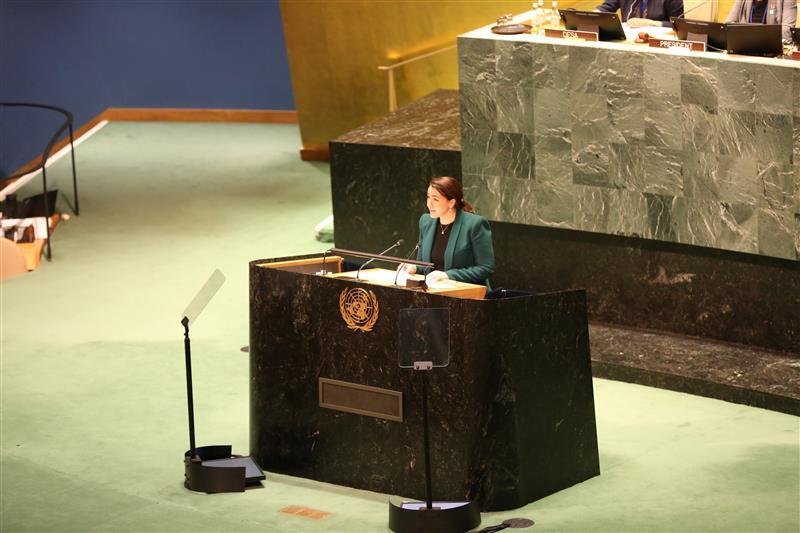Her Excellency Mariam bint Mohammed Almheiri, the UAE’s Minister of Climate Change and Environment, has delivered the UAE National Statement to the UN 2023 Water Conference.
HE Almheiri emphasised the UAE’s ongoing commitment to responsible water management and addressing water scarcity through diversification, conservation, and innovation.
“As our nation’s founder the late Sheikh Zayed Al Nahyan taught us, water is not simply a commodity; it is our lifeblood,” HE Almheiri said.
The UAE proudly hosts the 28th Conference of the Parties to the UN Framework Convention on Climate Change (COP28) in November 2023. The Global Stocktake, one of the critical outcomes of COP, will provide the first opportunity to evaluate collective progress in delivering on the goals of the Paris Agreement. As an elected member of the Security Council, the UAE champions climate, peace, and security and the need for the Council to address emerging challenges.
“Inclusivity will be one of the hallmarks of COP28, not only in terms of the stakeholders we aim to have at the table but also in terms of the agenda,” HE Almheiri said.
The United Arab Emirates is committed to advancing progress on the Sustainable Development Goals (SDGs), including SDG 6 to ensure access to water and sanitation for all, and to accelerating progress throughout the Water Action Decade.
“Responsible water management is an issue of overriding importance to the United Arab Emirates. This is a must for a country with an average rainfall ten times lower than the global average, limited freshwater resources and both a growing population and economy,” HE Almheiri said.
The UAE Water Security Strategy 2036 seeks to ensure continued and sustainable access to water, addressing each dimension of the water supply chain. The country aims to reduce potable water consumption by 20% and increase the reuse of treated water to 95%. The strategy complements the UAE’s Updated Second Nationally Determined Contribution and the UAE Net Zero by 2050 Strategy.
The UAE is developing and scaling up independent water projects based on reverse osmosis technology while expanding the share of clean and renewable energy in desalination to reduce the environmental impact of desalination. The country is also making substantial progress in reducing water losses and consumption through green building and product standards, building retrofit initiatives, water tariff reform, and public awareness initiatives.
“Innovation is key if we are to address the challenges water presents and to take advantage of the opportunities it offers. Currently, agriculture accounts for 70% of all freshwater withdrawal globally. If we are to shift to a more sustainable pathway, innovation and efficiencies will be inevitable,” HE Almheiri said.
The UAE is at the forefront of climate-smart agriculture and food systems, driving the adoption of modern farming solutions such as optimised greenhouse design, hydroponics, and vertical farms. Through the Agricultural Innovation Mission for Climate, the UAE’s joint initiative with the United States, partners have committed $8 billion for investment in climate-smart agriculture and food systems benefiting long-term water security.



